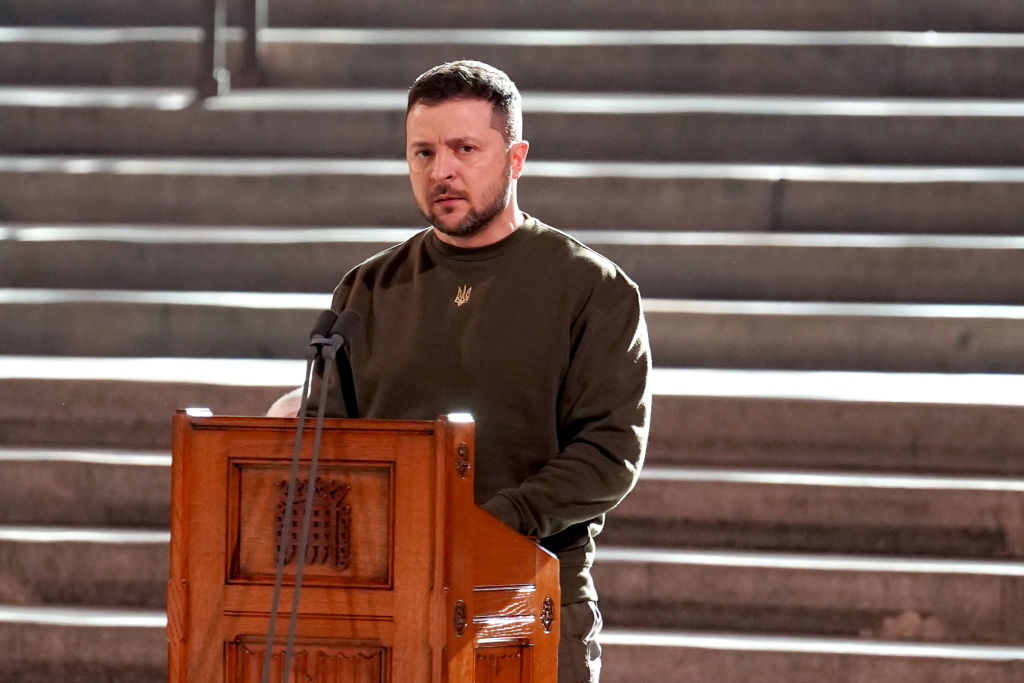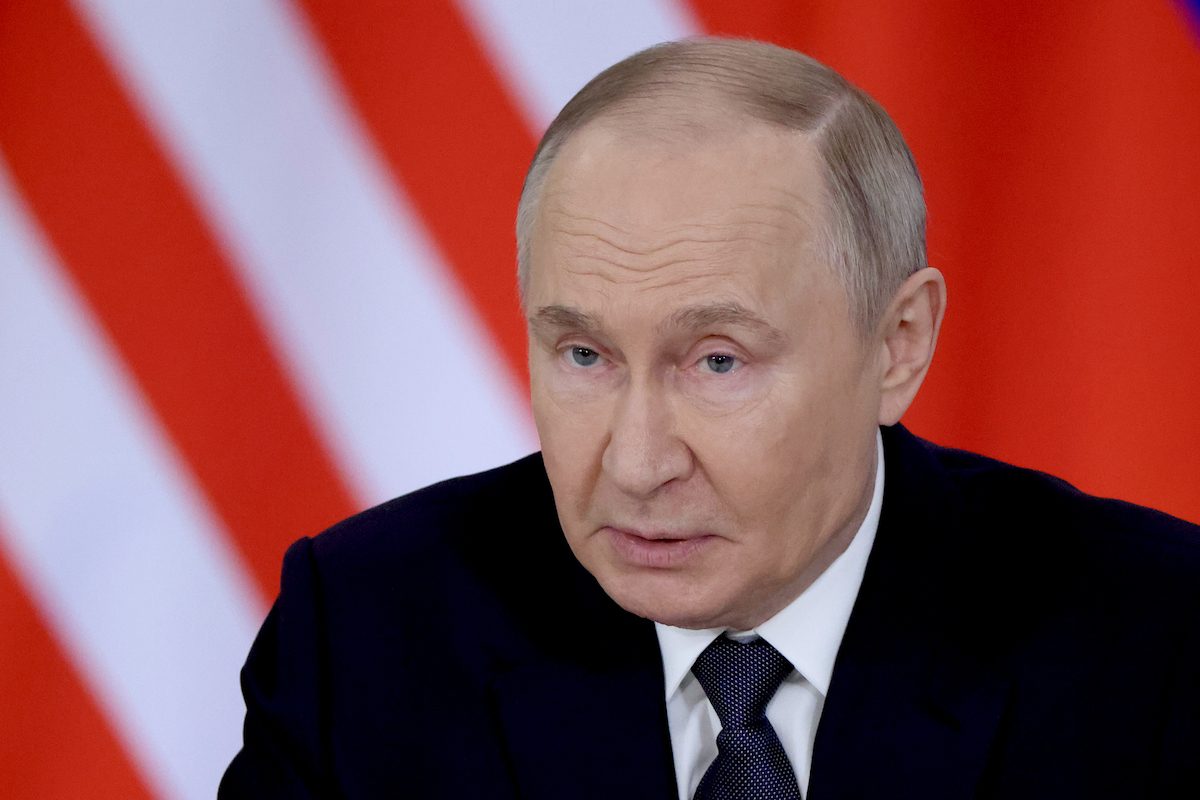Kharkiv, Ukraine
Wednesday, the morning after Russia sent six long-range missiles into the center of Ukraine’s second city, I went for a run in snow-covered Gorky Park listening to the music of the German band Scorpions: “Down to Gorky Park, listening to the wind of change.”
Scorpions were singing about a park of the same name in Moscow but I wanted to hear that song here in Kharkiv. When that song was released in 1990, the Soviet Union was breaking up. There was so much hope. Ukraine and other nations that had lived under the Iron Curtain began the process of finding freedom, happiness, possibility. But Russia? Ah, I thought as I ran past the fresh crater of a Russian missile in Kharkiv’s Gorky Park, what happened to Russia? What happened to that “wind of change”?
Then a new alarm sounded — and I ran like hell for a hopefully safer place. That burning question lingered: for how long do the people of the world have to live in fear of tyranny?
A few hours later, speaking in London at the Palace of Westminster, the Mother of Parliaments, that birthplace of the modern democratic process, Ukrainian president Volodymyr Zelensky asked the same question. And he boldly proposed an answer: Zelensky articulated a new theory for the world security structure, one based not on fear and control but on confidence and democracy. In essence: we don’t have to live in Chinese balloon-land, forever terrorized.
“I can see in your eyes we think the same way you do,” he said to the assembled members of the British Parliament, including his friend Boris Johnson, one of the first world leaders to stand with Ukraine, as well as Rishi Sunak, the current prime minister. “We know freedom will win. We know Russia will lose and we really know that victory will change the world, and this will be a change that world has long needed.”
This was no absentminded beauty pageant wish for world peace but rather an urgent, reasonable, and radical declaration. Zelensky’s vision, as articulated at Westminster, stands against the timid, bureaucratic worldview favored by the powerful people who have so long managed our global affairs. Many in global elite circles — the Neville Chamberlains, the appeasers — think that tyrannical powers are somehow necessary in the matrix of life on earth.
One of the clearest representatives of that worldview is Henry Kissinger, the ninety-nine-year-old former US secretary of state.“For all its propensity to violence, Russia has made decisive contributions to the global equilibrium,” he wrote in this same magazine last December. This is the same Kissinger who in the 1970s decided the US would recognize Beijing instead of Taiwan, siding with tyranny over freedom.
Ukraine stands against the idea that we have to accept a world with tyranny. Most of the world does not realize how extraordinary was Ukraine’s 2014 Revolution of Dignity: regular people stood up to the powerful pro-Putin regime and its lethal secret police. That revolution worked — but the work of retaking democracy and stopping corruption was ongoing. Which is why, in 2019, the Ukrainian people elected an artist, an actor — not an oligarch — as president.
Zelensky was not a part of Ukraine’s Maidan Revolution. But he now articulates and represents the spirit of that Revolution: a radical but real belief that the people can take control of their democracies from corrupt elites, a belief that we the people don’t have to live as pawns in perpetual fear.
The spirit of that revolution is an attitude of confidence, the essence of free people. In London, President Zelensky said, “Two years ago [in peace time] I thanked you for delicious English tea. Now I thank you in advance for powerful English planes.”
That confidence is the counterbalance to fear. It is the same reason why Zelensky had no qualms wearing his sweatshirt to meet King Charles III — and why I doubt the King cared. Zelensky and the Ukrainian people are standing as David versus an evil Goliath. Ukrainians in their bravery are willing to spill blood to show that tyranny can be stopped.
“The United Kingdom is moving with us toward the most important victory of our lifetime: the victory over the very idea of war,” Zelensky said. “After we win together any aggressor big or small will know what awaits him.”
With the support of the civilized world and the fierce, freedom-loving bravery of the Ukrainian people, perhaps we can push for an age of freedom and peace.

























